Photographs of Angelina Jolie, Nicole Kidman, and other pale, beautiful women cover the walls of the shack under a layer of dirt. Among them, the proud gaze of Stalin stands out. “Without him we would all be Germans,” says Pore Foretilidize, pouring me another glass of chacha. “Drink, Mussolini!” the 80-year-old commands. He likes to call me that because of my Italian origins.
Foretilidize lives in one of the steep valleys of Tusheti, a region of Georgia that borders Russia along the Greater Caucasus Mountains. Every year, at the end of summer and before the first snowfall, he makes the journey to the warm plains of Vashlovani with his flock of sheep.
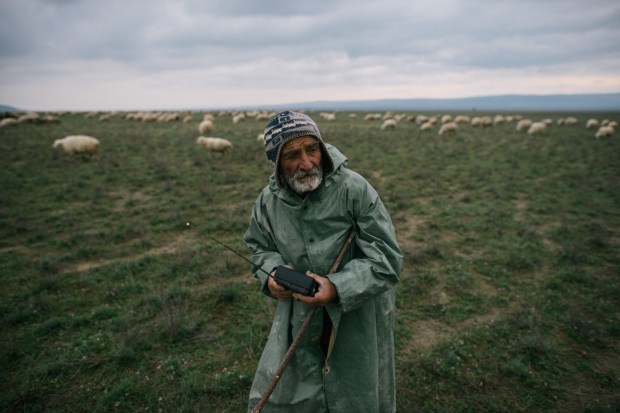
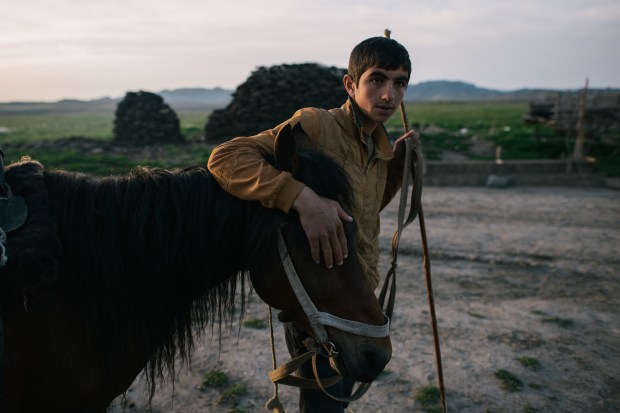
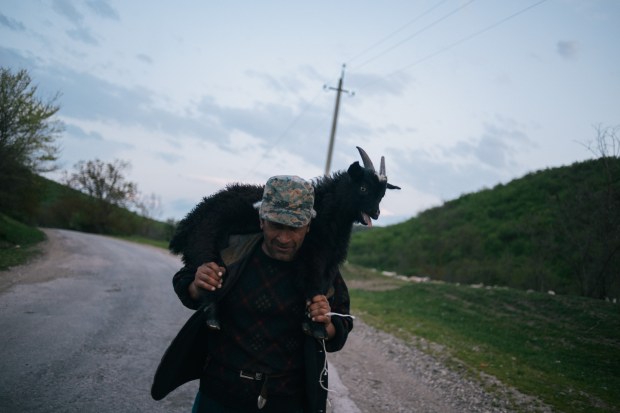
Around the same time, Azeri shepherds depart their summer pastures in Kvemo Kartli, in southeast Georgia, while Georgian Chechen shepherds of the Kist ethnic group leave their homes in the Pankisi Gorge. They are all headed in the same direction. For a few months, Vashlovani becomes a multicultural haven for shepherds.
It took me two days of travel on bad roads, including 20 miles on foot, to get here. I had planned to photograph the trip back to Tusheti but was told at my arrival that we wouldn’t be leaving for another three weeks because of the snow. So instead I started documenting life in these shacks, which Georgian shepherds of all backgrounds have temporarily called home for countless winters.
Vashlovani sits in the last folds of Georgia before the arid plains of Azerbaijan. The border is only a few hundred feet from the shack I share with Foretilidize, his son, and three other shepherds from Tusheti. There is not enough water to shower, so they bring only two sets of clothes: one to wear every day and one for when they go back to their families once a month. In the evenings, when we grow tired of our bread, cheese, and preserves, we watch the lights over the border and dream of what they might be selling in their kiosks.
This border did not exist before the fall of the Soviet Union. When it collapsed and these countries were created, Azerbaijan installed water and electricity lines within its borders, bypassing Vashlovani and making it even more isolated. Yet it’s full of life during the three weeks I spend here, getting to know the shepherds.
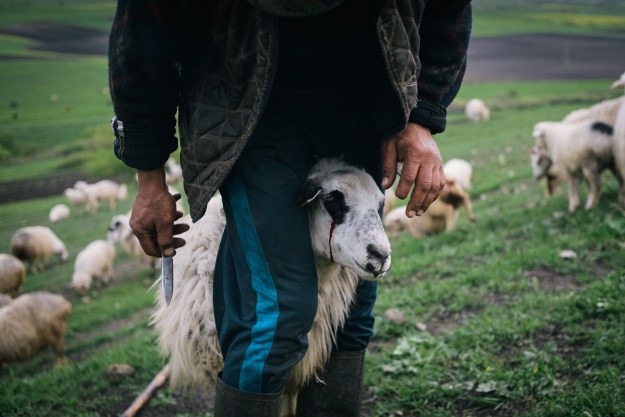
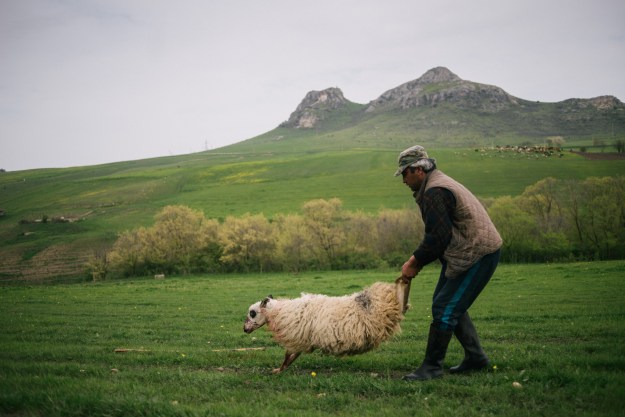
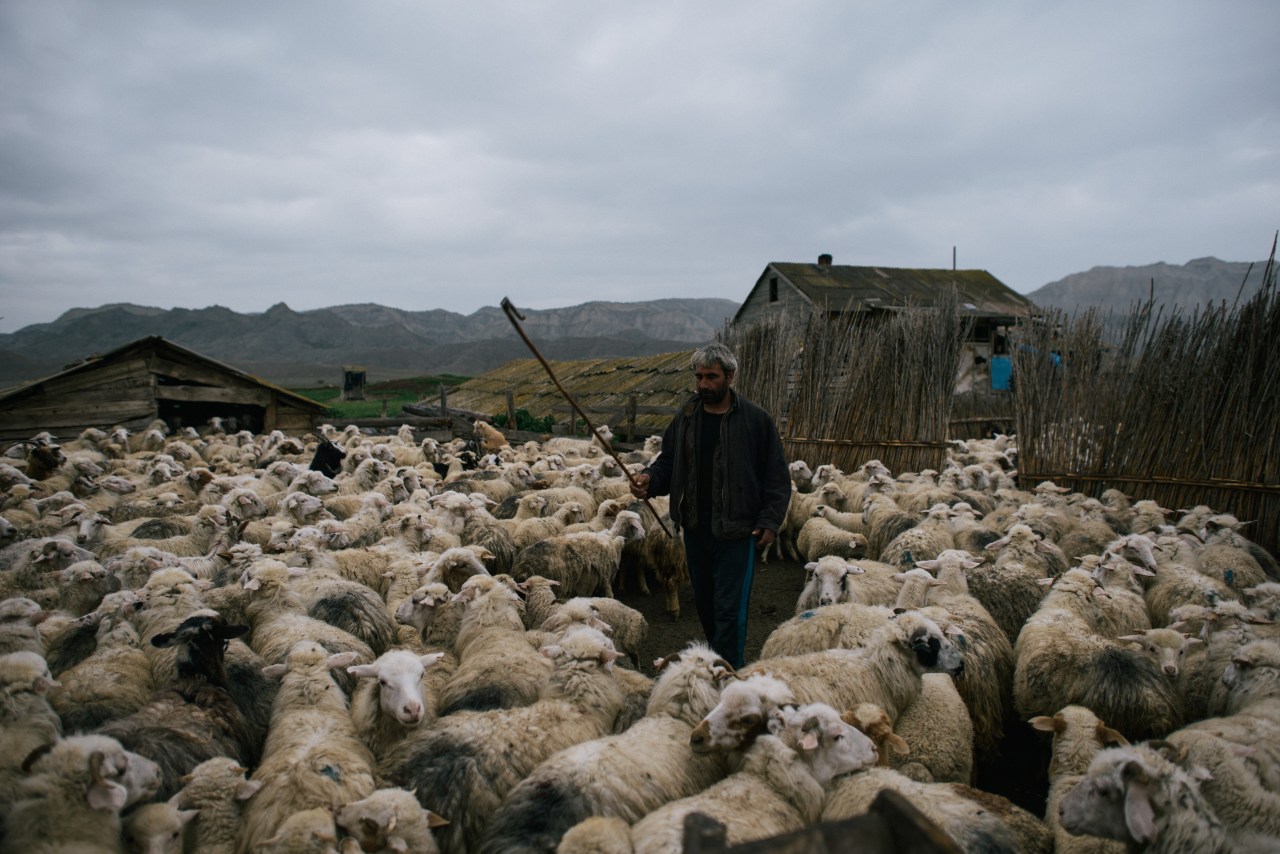
I soon learn that ethnic Azeri shepherds move around with their families, which explains why their shacks are much more sophisticated and comfortable, recognizable by the colorful clothes that hang out to dry and the children who play around.
The living arrangements of the Kist shepherds are simpler. In their shack, a beautifully written word decorates the otherwise empty wall: Allah.
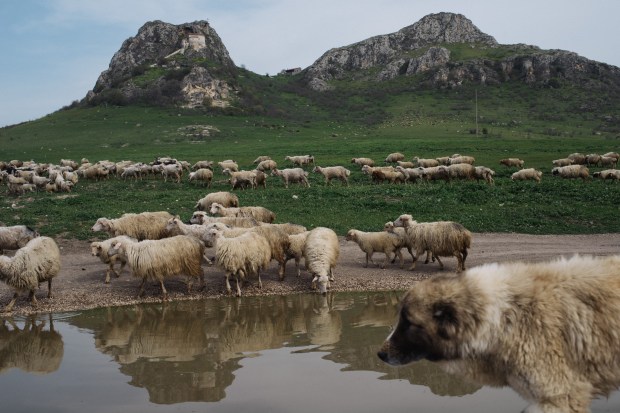
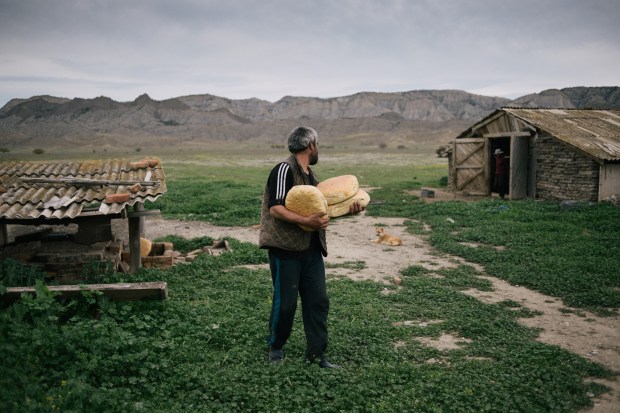
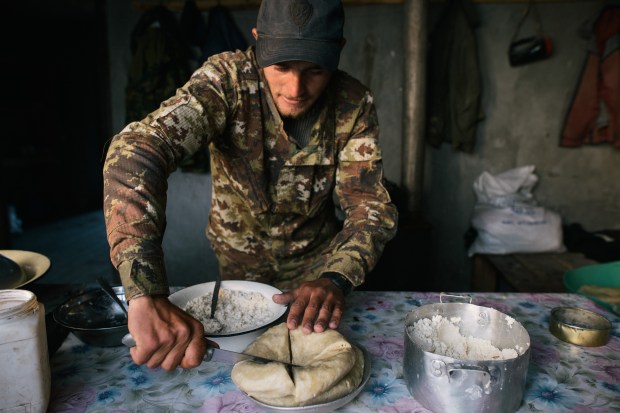
After a few weeks, it’s time to leave for the mountains. The shepherds mark their sheep in order to recognize them at the end of the transhumance, the technical term for the seasonal movement of livestock.
Vakhtang Martzinaidze, the 28-year-old shepherd I share a shack with, hopes this journey will be his last one. He wants to find a job abroad, maybe in Russia or Turkey. Like many of the shepherds here, he doesn’t own the flock he takes care of. He hopes that by working abroad, he will be able to save enough money to buy his own sheep one day.
During one of the last sunsets in Vashlovani, Pore Foretilidize watches over his sheep, quoting Stalin. “Men are not sheep,” he says. I have never been able to find the speech where that line is from, but I like it. At the start of the transhumance, life stops being a circle revolving around the shacks of Vashlovani and becomes a line of thousands of sheep. I will learn that you can’t force the flock to go where you want. You can suggest a direction, but if you insist too much, the sheep will go the opposite way.
Slowly, we return to civilization. We traverse Kakheti, with its beautiful parks and vineyards, and arrive at the foot of the mountains. They are still full of snow. The shepherds will have to wait again, but now they are closer to their families. This is where I leave them. I say goodbye to nights under the stars, to the shepherds, to the sheep, and to the dogs that have finally learned to recognize me and don’t attack me anymore.
Originally published on Roads & Kingdoms on Apr 12, 2017.